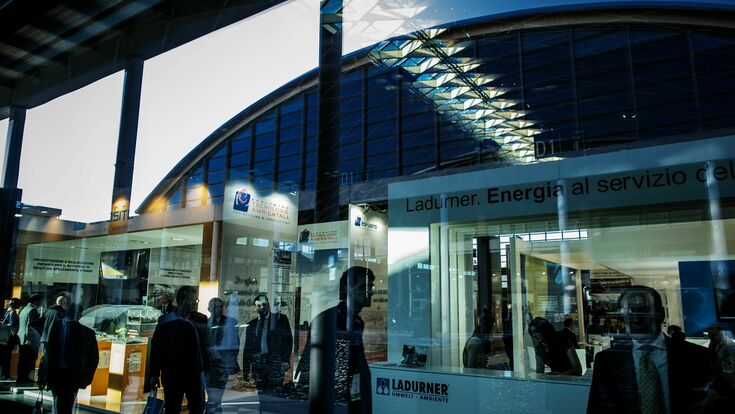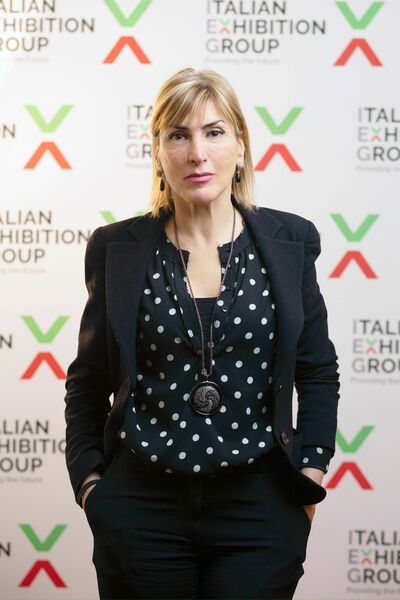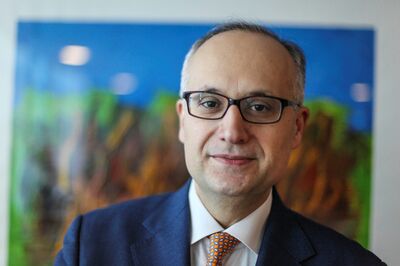Ecomondo 2022 : Ecomondo: Make waste management green!

The world is changing and the waste and resources sector with it. Already a key player in a circular economy, the industry is focusing more and more on sustainable solutions. From 8 to 11 November, the flagship event for ecological transition will be back at Rimini Expo Centre for its 25th edition.
Occupying about 100,000 square metres of the entire expo centre, the show is an authoritative business and research platform, where public and private companies, local administrations and the scientific world are the main players.
Focus on the European Green Deal
The exhibition will be arranged according to Ecomondo’s four pillars:
- management and valorisation of waste and its transformation into a secondary raw material;
- circular bioeconomy and bioenergy;
- treatment and management of water resources;
- reclamation and redevelopment of contaminated and disused industrial sites and hydrogeological risk: from large machinery for metal recovery to digital control solutions for distributing water, from technologies for regenerating soil and degraded industrial sites to 3D printers powered by bioplastics.
This year Ecomondo will take place in the European context of the Green Deal and NextGenerationEU. The circular bioeconomy and renewable energy sectors are demanding a greater share in the European strategic plans that guide the ecological and energy transition: projects and public policies that will put €1,000 billion of public and private investment into circulation by 2030.
Special content and networking opportunity
Special content will also feature, as Alessandra Astolfi, Global Exhibition Director Italian Exhibition Group, explains: “Among this year’s new features, e.g. food waste, the textile hub and environmental protection, there is the Start Up & Scale Up Innovation initiative, promoted in collaboration with the ITA agency, whose main partner is ART-E (Attractiveness Research Territory), Emilia-Romagna Joint Stock Consortium,” she says.
“The expo area will be both physical and virtual, entirely reserved for innovative start-ups and young Italian and international enterprises able to offer services and/or products ascribable to the green tech and environmental sustainability world in an energy context and to the sustainable mobility world.”
Green solutions for every industry are a necessity, as Alessandra points out: “We can no longer continue to extract prime resources from the planet. The model of linear economy based on the concept of extraction, production-consumption and production of disposable goods can no longer work on a planet that now has a population of over seven billion. Food is no longer sufficient, there is a lack of water, and climate change has eroded pieces of fertile land, making them unusable. In Europe we have refined our ability to produce technology that is able to transform waste into a resource and new raw material; we are very advanced in the prevention of waste and the reuse of production scrap in the manufacturing cycle. A new circular economy is regenerative and possible.”
To connect all interested parties, Ecomondo represents an exceptional networking opportunity from every point of view, she adds.

Events programme
As always, it is not just the exhibition halls that attract visitors. The 2022 edition of Ecomondo will also feature a series of congresses and seminars with experts, researchers, companies, and national and international institutions, with the ever-increasing involvement of the European Commission, thus making the event of prime European and Mediterranean importance on the innovation and ecological transition policy front, also thanks to the work of the Technical-Scientific Committee headed by Professor Fabio Fava from Bologna University. He talked to Waste Management World about the waste industry and the programme the Committee has put together for this year’s Ecomondo.
(Read the full interview here)
What are the biggest challenges for the waste sector?
Waste management is a universal issue affecting the daily health, productivity and cleanliness of communities. Poorly managed waste is contaminating the world’s oceans, clogging drains and causing flooding, transmitting diseases, increasing respiratory problems through airborne particles and affecting economic development.
Growing prosperity and the expansion of urban areas have increased the per capita generation of waste. According to recent estimates, the global waste production from cities alone is about 1.5 billion tonnes; this figure is expected to increase to 2.3 billion tonnes by 2025. Furthermore, urban waste management is expensive and is one of the main costs for cities in low-income countries. Thus, the collection of all waste and the procuring of land for treatment and disposal have become difficult in many cities, countries and continents.
Thus, the main common challenges of the sector include:
limited abilities of local authorities to administer waste management due to their limited resources and capacity for planning, contract management, operational monitoring, etc;
lack or scarcity of data on how much waste is generated and the types of waste being generated; this has not allowed local governments to select appropriate management methods (e.g. number of vehicles, targets for diversion of waste, track progress, waste generation patterns change), assess and acquire suitable technologies, consider strategic partners for service provision and plan for future demand;
low and different standard recyclables, which depend to a considerable extent on geographical features, with quality varying by region;
the lack of effective and sustainable solutions for the management of some waste that presents significant risks for employees and the environment, such as combustible materials, chemical waste, machine-related hazards, etc.;
lack of skilled workers to handle machines properly but also updating and innovation of the machinery deployed to collect garbage, to store and recycle waste and store data.
Developing countries often display an array of other problems, including low collection coverage and irregular collection services, unpolished open dumping and burning without air and water pollution control, etc. Development of effective waste management systems in these countries is quite demanding due to the absence of technical, financial, institutional, economic and social factors. In Europe, there is potential to increase the percentage of material collected for recycling in construction and demolition waste (C&DW), municipal solid waste (MSW) and waste electrical and electronic equipment (WEEE) waste streams. In absolute terms, the largest potential appears to exist in the MSW stream, calculated at approximately 111 or 139 million tonnes (depending on the method used). In relative terms, WEEE shows the highest increase in potential for recycling (+103% or +112%, depending on the method used).
These factors, again among others, make sustainable waste management a complicated proposition on the path of economic development, and most low- and middle-income countries and their cities struggle to address the challenges mentioned above.
What needs to be done to transition to more sustainability in the waste sector?
The adequate assessment of the composition and volume of waste can be a deciding factor in choosing an efficient way to manage its disposal. Other important measures include:
- introducing and adopting the most effective legislation and regulations;
ensuring full accessibility of all waste for collection; - better engagement and information, via regular audits, of the stakeholders responsible for the management and control measures of the waste management;
- training and management of the employees. Proper training and motivation of employees are necessary for delivering qualified services responsibly and diligently in the waste management industry, which sometimes innovates technologies and processes for addressing the new needs of the circular and green economy;
- improving the existing level of local public awareness.

What are the main goals of the Ecomondo events programme?
The pandemic highlighted the need to accelerate the transition of our industry towards climate neutrality and the adoption of the circular economy in the different industrial and urban landscapes, to also become more resilient and less dependent on major international powers. Ecomondo 2022 events will contribute to the adoption of policies and innovation enabling the intensification and extension of the circularity and sustainable use of renewable raw materials within the main European industrial chains, bringing the best technological innovation available into the territorial realities, also aligning financing, partnership creation and networking, communication, education and international cooperation, to make the industrial transition competitive and inclusive. But reducing the impact on the environment is no longer sufficient on its own. It is now necessary to start regenerating it, in order to ensure that land, sea and related ecosystems are once again healthy and resilient, to guarantee quality products and services, and to address the current and future essential needs of biomass and raw materials. For these new and emerging priorities, information, co-planning and the setting up of dedicated public-private partnerships, local and international, are needed. The Ecomondo 2022 conferences will also contribute to addressing these needs, facilitating public-private alliances, networking of operators and institutions in the definition and adoption of regulatory, innovation, financial, training and internationalisation cooperation on those priorities and the post-pandemic industrial, economic and social regeneration.

